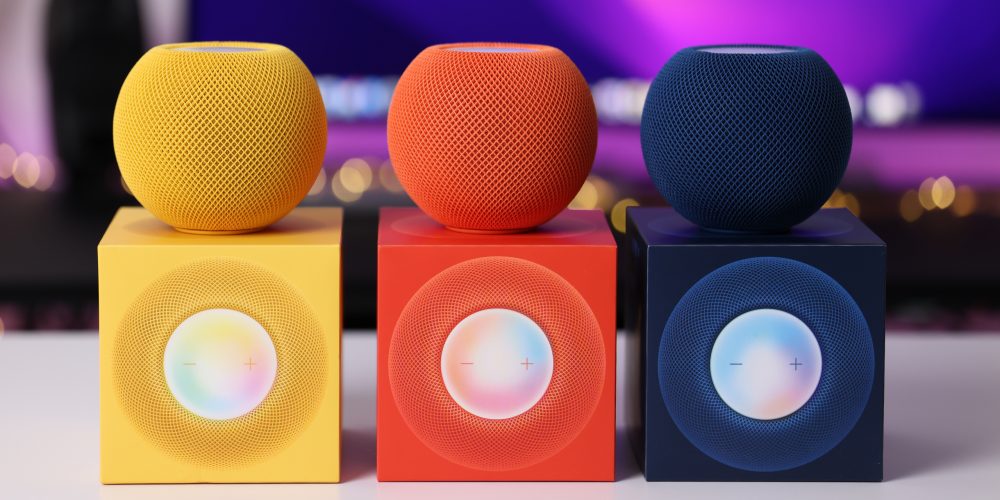
The original HomePod was released by Apple back in 2018 and was ultimately discontinued in March of this year. Now, it’s dying a very slow and very sad death, and I’m starting to wonder if we (or Apple?) might have taken it for granted all along. Hear me out on this one.
Rocky from the start
The HomePod’s launch was rocky from the start. It was announced at WWDC in 2017 with a $350 price tag and a promise of “reinventing home music.”
Apple said the smart speaker would be available to purchase later that year, but that didn’t actually happen. Instead, Apple delayed the HomePod’s release to early 2018, saying at the time that it simply needed “a little more time” to get the smart speaker ready for its big launch.
Apple ultimately released the HomePod to the public on January 26, available in space gray and white for $349. The drama didn’t end there, however. Just over a year later, in April of 2019, Apple did something it very rarely does: it cut the HomePod’s price by $50, giving it a new starting price of $299 in the United States and other countries.
In April 2020, Apple ran a rare promotion exclusively for employees, offering HomePod for $149 in what was viewed as a fire sale at the time. Less than a year later, Apple announced that HomePod was being discontinued, saying in a statement that it was refocusing its efforts on the $99 HomePod mini instead.
A slow and painful death

But the HomePod’s death was not immediate. It lingered in Apple Stores and via the Apple Online Store for several months before ultimately being removed once stock was exhausted. Now, users of the original HomePod are living in a sort-of void, using a speaker that once sold for $349 and is powered by a processor that was first used in the iPhone 6 from 2014.
The HomePod sound quality is still excellent today, but that A8 processor inside shows its age when it comes to things like Siri requests, HomeKit control, and AirPlay playback with multiple speakers.
Furthermore, during the last several months, we’ve seen a growing number of reports of HomePod units failing completely, with a so-called “popping” sound now infamous among users. If your HomePod starts making popping noises, chances are it’s about to bite the dust.
And if (or when) your original HomePod dies, there’s no clear replacement option. You might think you can turn to eBay and find a HomePod from a reseller for a reasonable price. Nope. For a new (and sometimes even a used) HomePod on eBay, you’re looking at a price tag in the ballpark of $500.
Sonos makes some compelling smart speaker options, but they’re different than the original HomePod and lack key features such as deep Apple TV integration. HomePod mini is a great option for Apple fans, but it simply doesn’t stack up to the original HomePod in terms of sound quality.
HomePod’s future

What does the future hold for the HomePod? Bloomberg has reported that Apple is working on additional HomePod form factors, including a connected TV box with an integrated HomePod speaker and FaceTime camera.
Apple is also reportedly considering a smart speaker with a touch screen, similar to competing products from Amazon. Neither of these products sounds like a successor to the original HomePod and its room-filling sound quality.
Three years later, I’m starting to wonder if we might have taken the original HomePod for granted. It was a niche product, sure, but now that there’s no clear replacement on the market, it’s clear that it served a specific use case very well.
In an ideal world, there’s a new HomePod on the way that’s similar to the original model, but with a $249 price tag, a faster processor inside, and better reliability. Whether or not that turns out to be the case, however, remains to be seen.
Read more:
- Comment: The state of Apple TV and end of HomePod warrants a Home strategy roundtable
- Opinion: HomePod delay coupled with new competition amplifies Apple’s smart speaker challenge
- HomePod sales get 180% boost, but a new model ‘may be needed’
Follow along with me
To keep up with more of my work, you can follow me on Twitter. Check out the 9to5Mac Merch Store to help support the site. I also host a daily podcast, 9to5Mac Daily, which you can subscribe to on Apple Podcasts.
FTC: We use income earning auto affiliate links. More.




Comments